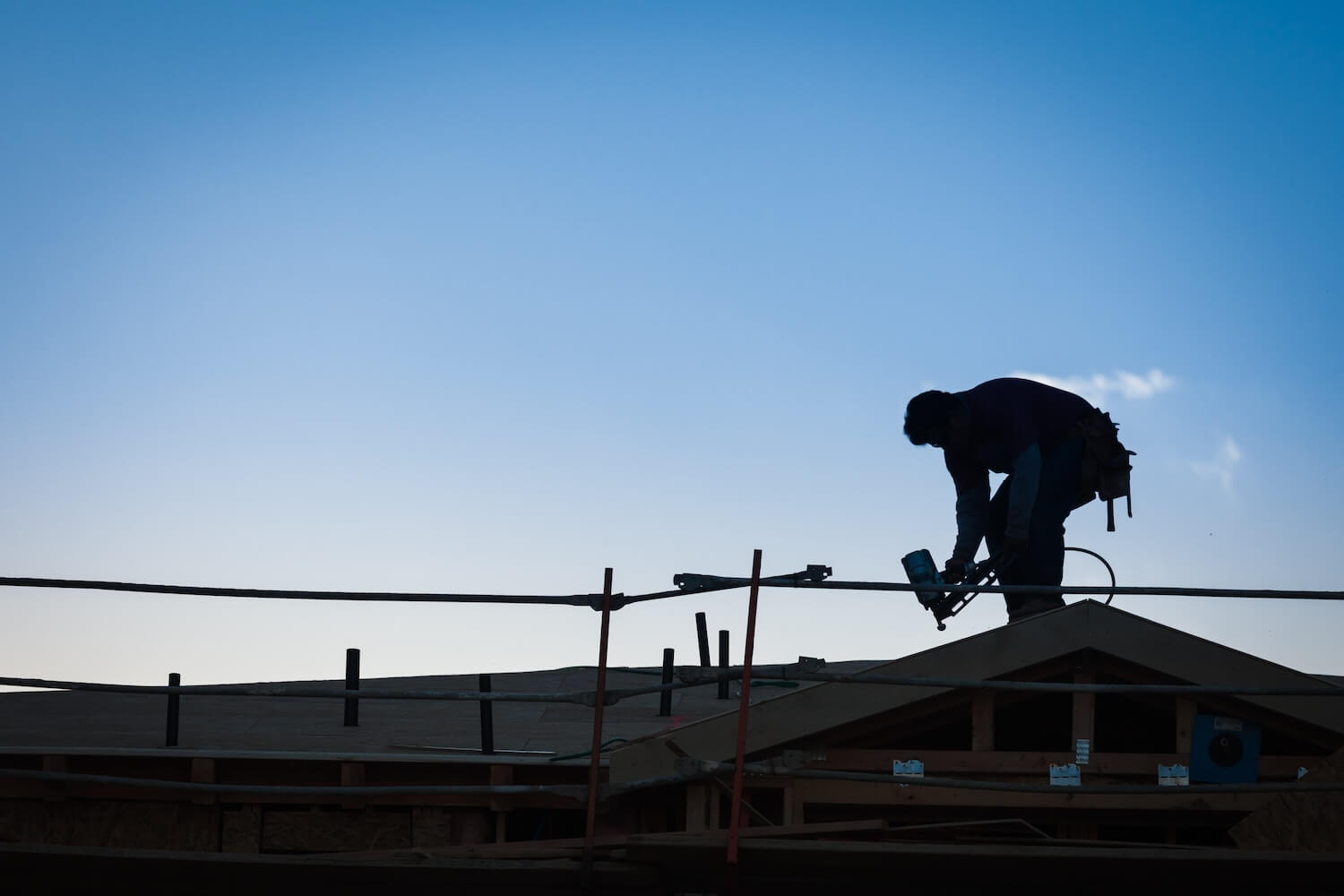When it comes to roof repairs, there is no room for error. Your roof is one of the most essential components of your home, protecting you, your family, and your belongings from the elements. Therefore, hiring a professional contractor for roof repairs is critical to maintaining the integrity of your home. Whether you’re facing a minor leak, significant storm damage, or wear and tear, finding the right contractor can make all the difference in ensuring quality and long-lasting results.

Roof repairs can be complicated, time-consuming, and even dangerous. Hiring the right contractor helps mitigate these risks, but with so many options out there, how do you know which one to choose?
In this comprehensive guide, we’ll explore everything you need to know when hiring a roofing contractor for professional roof repairs, from qualifications and experience to communication and safety protocols. By the end of this article, you’ll have all the tools necessary to make an informed, confident decision.
1. Roof Experience and Roof Expertise: A Solid Foundation for Success
One of the first things to look for when hiring a roofing contractor is their experience. Roof repair is a specialized skill that requires knowledge of different roofing materials, installation techniques, and repair methods. Therefore, you want to make sure that the contractor you hire has a wealth of experience in dealing with the specific type of roof and repair you need.
Years in Business
A roofing contractor’s track record says a lot about their reliability and reputation. Contractors who have been in business for several years have had the time to hone their skills, establish a solid customer base, and build a reputation within the industry. This type of experience usually leads to consistent, quality work. A contractor with years of experience is also more likely to have developed the necessary processes to manage repairs efficiently, reducing the risk of errors or delays.
Specialization
It’s important to note that some contractors specialize in new roof installations, while others may focus primarily on roof repairs. While there is certainly some overlap, roofing repairs often require more nuanced skills, such as patching, waterproofing, and re-shingling. Be sure to choose a contractor who specializes in roof repairs, as this ensures they are familiar with the specific techniques and materials involved.
Material Knowledge
Roofing systems come in many different materials, including asphalt shingles, metal, tile, slate, and flat roofing membranes. Each type of roof has its repair requirements, and not all contractors are equipped to handle every material. Therefore, ensure the contractor you hire has experience working with the same roofing material on your home. A skilled contractor will know the best techniques for repairing your specific roof type, whether it’s replacing damaged tiles or fixing leaks in a metal roof.
2. Roofing Licensing, Certification, and Insurance: Ensuring Legitimacy and Protection
Before hiring a roofing contractor, it’s crucial to verify that they have the proper licensing, insurance, and bonding. These factors provide reassurance that the contractor is legitimate and adheres to industry standards and regulations.
Licensing
Most regions require roofing contractors to hold a valid license to operate legally. The process for obtaining a license typically includes passing exams that test knowledge of local building codes, regulations, and safety standards. By hiring a licensed contractor, you ensure that the work done on your roof meets local regulations and will pass inspections.
To confirm a contractor’s licensing status, ask to see a copy of their license, and verify it with the local licensing authority. You can often look up licenses online via government or industry websites, which can help confirm that the contractor is current and in good standing.
Insurance
Roofing work is inherently risky, with contractors working at great heights and handling potentially dangerous materials. Therefore, insurance is a must. A reputable roofing contractor should carry general liability insurance and workers’ compensation coverage. General liability insurance protects you in case of damage to your property during the repair. Workers’ compensation insurance covers medical expenses if a worker is injured while on the job.
You should ask for proof of insurance before hiring a contractor. This ensures that you won’t be held financially responsible for any accidents or damages that occur while the contractor is working on your roof.
Bonding
In some cases, you may want to ensure the contractor is bonded. A bond is a form of financial protection that ensures the contractor will complete the work as agreed. If the contractor fails to do so, the bond provides compensation to the homeowner. Bonding can give you added security in case the contractor fails to meet their obligations.
3. Roofing Reputation and Customer Feedback: A Window into Quality Roof Workmanship
A contractor’s reputation is one of the most reliable indicators of the quality of their work. Word-of-mouth recommendations and online reviews offer valuable insights into the contractor’s performance, customer service, and overall reliability.
Online Reviews and Ratings
In today’s digital age, it’s easier than ever to find reviews and ratings for roofing contractors. Websites like Google, Yelp, and the Better Business Bureau (BBB) feature customer feedback on local roofing companies. While reading reviews, pay attention to patterns. If multiple reviews mention poor workmanship, missed deadlines, or unprofessional behavior, these may be signs to avoid that particular contractor.
A solid reputation for high-quality work, good communication, and timely service is a good sign that the contractor is dependable and trustworthy.
Referrals and Word of Mouth
One of the best ways to find a reliable roofing contractor is through personal referrals. Ask friends, family, neighbors, or colleagues who have had recent roofing repairs for recommendations. They can provide first-hand accounts of their experience with a particular contractor, which can help you avoid potential pitfalls and narrow down your options.
Past Projects and Portfolio
Many reputable contractors showcase their past work through a portfolio or on their website. If the contractor doesn’t have a portfolio, ask them to provide examples of recent roof repairs they’ve completed. This allows you to assess their work firsthand and determine whether it meets your standards.
4. Written Roofing Estimates and Transparency: Clear Expectations and Fair Pricing
Once you’ve narrowed down your list of potential contractors, it’s time to request written estimates. A reliable roofing contractor should provide you with a clear, detailed estimate that outlines the scope of the work and an itemized breakdown of costs.
Detailed Estimates
Your estimate should include the cost of materials, labor, permits, and any additional charges such as disposal fees. It should also specify the expected timeline for completion. Be wary of contractors who provide vague or incomplete estimates. A reliable contractor will take the time to inspect your roof thoroughly and provide you with an accurate, comprehensive estimate.
Avoiding Hidden Fees
While a low estimate can be tempting, it’s important to remember that quality roof repairs come at a cost. If a contractor offers an unusually low estimate, they may cut corners or tack on hidden fees later. Make sure that the estimate includes all costs, and be cautious of contractors who provide estimates that seem too good to be true.
Payment Schedule
A reputable contractor should also provide a clear payment schedule, outlining when payments will be due and in what amounts. Avoid contractors who demand full payment upfront. Typically, a reasonable contractor will require a small deposit at the start and the remainder after the work is completed to your satisfaction.
5. Roof Warranties and Roof Guarantees: Assurance of Quality and Longevity
A warranty or guarantee is an essential part of any roof repair contract. It provides you with assurance that the work will be done correctly and that you will be protected in case issues arise after the repair.
Workmanship Warranties
The contractor should offer a workmanship warranty, which guarantees that the repair work will be free from defects for a specified period. The length of this warranty can vary, but most reputable contractors provide warranties that last between one and five years. If any issues arise during this period, the contractor should return to fix the problem at no additional cost.
Manufacturer’s Warranty
Many roofing materials come with manufacturer’s warranties that cover defects or issues related to the materials themselves. Make sure the contractor uses high-quality materials that come with manufacturer-backed warranties. Be sure to understand what the manufacturer’s warranty covers and the conditions that may void it, such as improper installation.
Understanding the Terms
Before you sign any contract, carefully review the warranty terms and conditions. Some warranties may require regular maintenance or inspections to remain valid. It’s essential to know what steps you need to take to ensure the warranty stays in effect.
6. Communication and Customer Service: Professionalism at Every Stage
Effective communication is one of the most important aspects of working with a roofing contractor. From the initial consultation to the final inspection, a good contractor should be responsive, clear, and professional in their communication.
Initial Consultation
A professional contractor should arrive on time for the initial consultation and take the time to explain the issues with your roof, the necessary repairs, and the available options. They should listen to your concerns and answer any questions you may have in a manner that’s easy to understand.
Transparency and Updates
During the repair process, the contractor should keep you informed of progress and any changes to the timeline or cost. If unforeseen issues arise, they should let you know promptly and explain the next steps.
Post-Repair Follow-Up
After the repairs are completed, a good contractor will check in with you to ensure that the work meets your expectations. Some contractors even offer post-repair inspections to ensure that the repairs have held up over time.
7. Safety and Worksite Protocols: Protecting Your Property and Workers
Roof repairs involve inherent risks, which is why it’s essential to choose a contractor who adheres to strict safety protocols. The contractor should have a clear safety plan in place to protect both their workers and your property during the repair process.
Workplace Safety
The contractor should be committed to maintaining a safe work environment, using appropriate safety gear, and following OSHA (Occupational Safety and Health Administration) guidelines. Ensure that they have proper fall protection, scaffolding, and other safety measures in place to reduce the risk of injury.
Protection for Your Property
In addition to worker safety, a professional contractor will take steps to protect your property. This may include covering your landscaping, driveway, or other vulnerable areas with tarps or plywood. The contractor should also clean up after the job is completed, ensuring no nails, debris, or tools are left behind.
Conclusion: Making the Right Choice for Your Roof Repair
Hiring the right roofing contractor can seem like a daunting task, but by focusing on key factors such as experience, reputation, licensing, transparency, and communication, you can ensure that you make a confident decision. A professional contractor will provide quality repairs, protect your home, and give you peace of mind that your roof is in good hands. Taking the time to research and vet potential contractors will save you time, money, and hassle in the long run, ultimately giving you a sturdy roof that stands the test of time.










